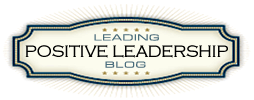 |
 |
01.28.11

10 Ways to Make Others Shine Earl Miller, a neuroscientist at MIT says, “Success has a much greater influence on the brain than failure.” Ned Hallowell comments in Shine: While of course mistakes need to be acknowledged and, one hopes, learned from, it may be more likely, from a purely neurological point of view, that a person will learn more from a success than a failure.” Earl Miller, a neuroscientist at MIT says, “Success has a much greater influence on the brain than failure.” Ned Hallowell comments in Shine: While of course mistakes need to be acknowledged and, one hopes, learned from, it may be more likely, from a purely neurological point of view, that a person will learn more from a success than a failure.”
Hallowell points out that acknowledgment or recognition serves two important functions. Of course there is the familiar purpose of giving the recipient encouragement, motivation and greater confidence, but recognition also promotes moral behavior through connection. Hallowell explains: “When a person feels recognized and connected to the larger group, she knows viscerally, not just intellectually, that she has made a contribution others value. Not only does this motivate her to do more and try harder, but it instills a desire to look out for the larger group…. It leads a person to do the right thing even when no one is looking.” Showing appreciation and giving recognition is part of the Cycle of Excellence process he calls shine. In our busy culture it is easy to overlook opportunities to acknowledge others. Noticing the positive is a daily challenge. In Shine, Hallowell offers these ten tips for promoting shine with the people you influence:
How do you make others feel valued? Related Interest:
Posted by Michael McKinney at 12:06 PM
|
BUILD YOUR KNOWLEDGE
 

How to Do Your Start-Up Right STRAIGHT TALK FOR START-UPS 
Grow Your Leadership Skills NEW AND UPCOMING LEADERSHIP BOOKS 
Leadership Minute BITE-SIZE CONCEPTS YOU CAN CHEW ON 
Classic Leadership Books BOOKS TO READ BEFORE YOU LEAD |